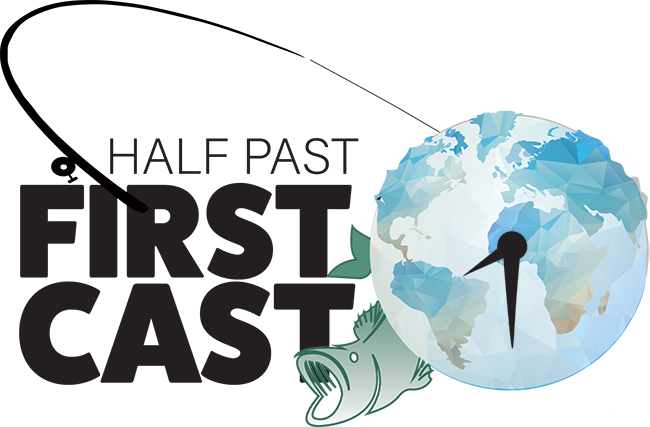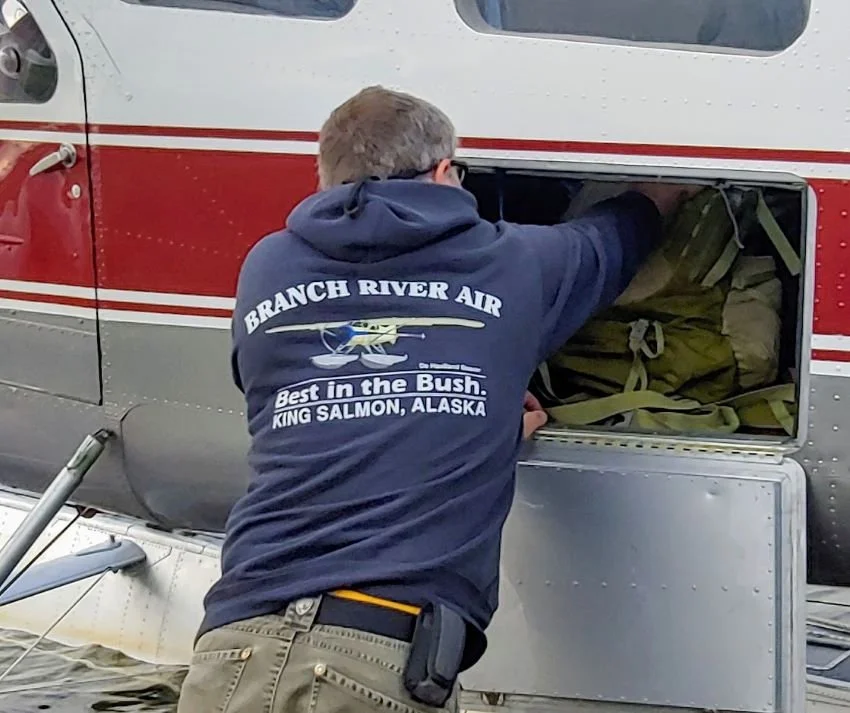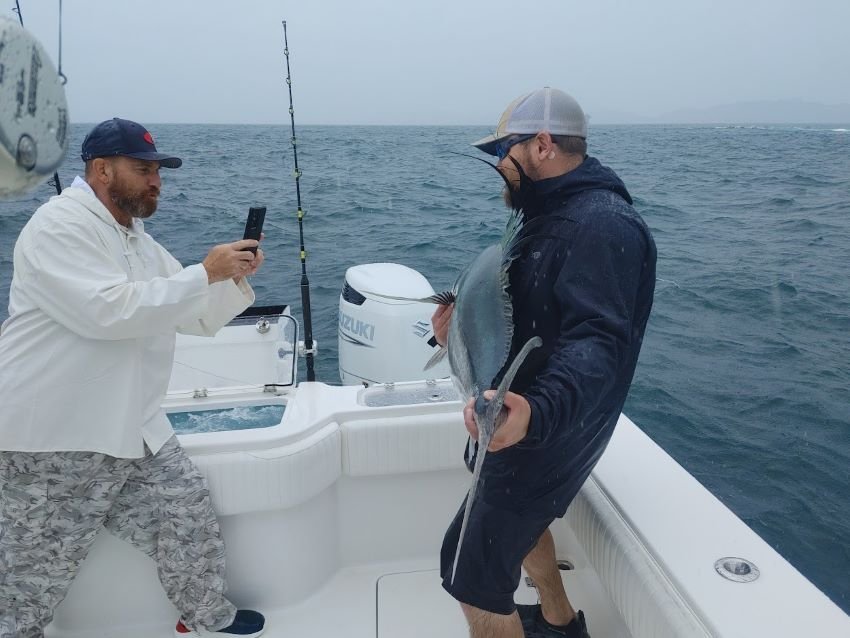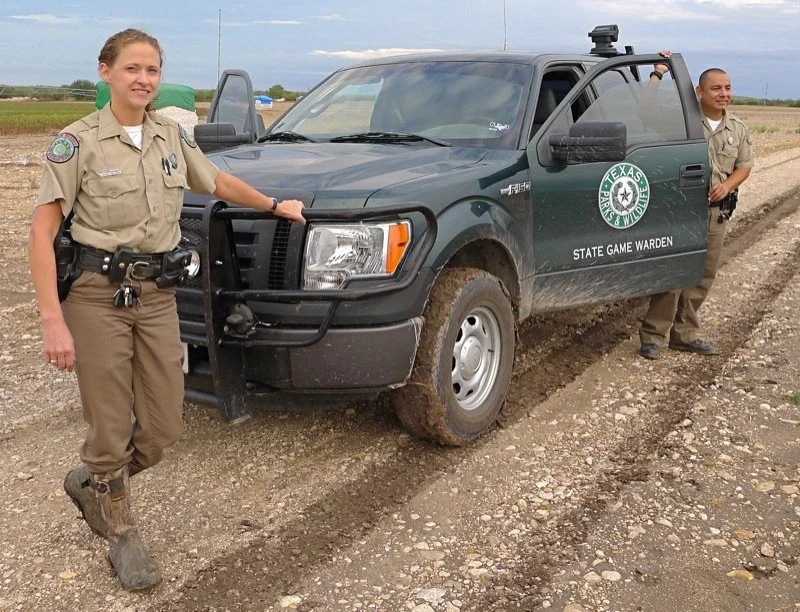So You Want to Work in the Fishing Industry?
If you love to fish, and you’re intrigued by multiple aspects of the fishing industry, a job related to that passion may seem like a dream come true. We all know the phrase “If you love what you do, you’ll never work a day in your life.” What could be better than getting paid to fish and getting free fishing tackle?
Those jobs do exist. You might be a tournament pro or a guide or a trip operator and spend tons of time on the best waters at the best times. Even those jobs, when performed successfully, have drawbacks, though. Those may include: low pay, minimal benefits, lots of time away from friends and family, and so forth. You might still pursue those dreams, but even if they don’t appeal to you there are plenty of other ways to remain connected to the fishing industry and get paid for it.
Indeed, just about any job type or skill can have a nexus to fishing. If you can write or take pictures or develop websites, there’s a fishing-adjacent job. Lawyers and supply chain specialists and accountants can also get in on the action. You might not be on the water every day, but there are corresponding benefits. Most of us have to have a source of income, and most of us prefer that it be pretty steady and secure, but if you want to have fishing be a part of your professional life, don’t make that process haphazard. Below are some questions and considerations to take into account:
See What’s Out There
As noted above, just about any career field can have a relationship to fishing. However, while you may know a list of trades or college majors, you might not know the full range of careers that are out there. One way to learn about fishing-specific opportunities is through the expanded reach of the web. In particular, the following websites are dedicated to job resources and job opportunities for people who love the outdoors:
Outdoor Industry Jobs (includes the narrower Fishing Industry Jobs)
There are also more generalist websites out there like Indeed.com and Monster.com that might have the occasional gem. Spend some time poking around there, set some alerts, and keep your eyes and ears open. There are also regional and more specific fishing industry job boards — for example, InTheBite magazine has listings for captains and crews for offshore boats).
Informational Interviews
If you know someone who has your dream job, or what seems like your dream job, ask them for an informational interview. What do you do on a daily basis? What do you like about it? What are the pitfalls? What would you do differently? Go out for coffee or a beer with them (or, better yet, spend time in the boat together) and pick their brain. If they’re geographically distant from you, ask for a Zoom call. What about if you don’t know anyone with the dream job, or someone who can connect you in the industry? Again, the web is your friend. Go onto LinkedIn and find someone who has taken what you perceive to be your dream path. Reach out to them. You’ll be surprised at how many strangers generally want to help you out. If they resist or ignore you, find someone else.
Consider the Haircut
What are your salary needs? What might they be in 10 years? There are a fair number of jobs in the fishing industry that pay well, some of them very well. At the same time, there are also many that pay less than comparable jobs in other spheres. Are you willing to give a “hometown discount” in order to be somehow involved in the world that you love? For most of us, the gut reaction is a hearty “Yes!” but when it comes time to pay for Junior’s braces, and a tow vehicle and boat gas, you may be less enthusiastic. Your spouse may be unenthused as well. Lots of divorces in the fishing world.
Consider the Benefits
Will you have health insurance? Disability? A retirement plan? I know people who fish for a living who say, “Why do I need a retirement plan? I’m already doing what most guys want to do when they retire.” Being your own boss, whether it’s as a guide, a tournament pro, or a freelancer of some sort is great, until you realize that your “boss” didn’t provide certain things that people with “normal” jobs get. It’s all well and good until you have a serious accident or illness and can’t work, or your kid needs major surgery, or you need to come up with $50k in entry fees and you have no cash on hand or equity in anything to draw upon. If your spouse gets those benefits for the family through his or her job, that may be the solution, but either way follow the smart financial advice to “pay yourself first.”
Giving Back
Having money is better than not having money, but there is also value in giving back to people, places and causes that matter to you. In an era when everyone seems overly mercenary, and many seem to worship at the altar of wealth, don’t discount professional options that are meaningful in other ways. The world needs skilled and passionate people paying attention to its most serious problems, and while the “good fight” may not always pay the best, it’ll come back to you in karma points.
How Much Time Will You Really Get Outside?
There are two different possible goals here: The first is getting to spend a lot of time on the water. The second is lifelong employability and a living wage while doing something you care about. In the best case scenario, your job sits in the sweet overlapping spot of that Venn diagram. However, I hear all the time from tackle store owners and others in the industry that in order to stay afloat, they have to be working while others are enjoying the outdoors. Take that into consideration. And even if you’re on the water, will it be quality time out there? For example, as a fishing guide you have to be prepared to watch others catch fish – and often they’re doing more trying than catching because they don’t have your skill set. If your top goal is more great fishing trips in the long term, you might be wise to concentrate on finding a non-fishing job at the intersection of maximum income and maximum flexibility.
Develop a General Skill….
OK, you’ve identified an occupation – or, better yet, a range of occupations – that appeal to you. Now figure out what you’ll need to be consistently employable at a livable salary. If you’re going to college, find the right major and/or internships. If you’re not going to college, consider trade school, an apprenticeship, or even just an informal mentoring relationship. You want to keep these areas broad – think “lawyer” or “writer” or “electrician” or “marine technician” – because narrowly defined skills may become less useful. Remember all of those well-paid typewriter repairmen and TV antenna installers from a couple of decades ago? They suddenly found themselves out of work.
….But Also Get as Specific as Possible
The entry level job may give you some leeway to build upon your generalist skills within your field, but eventually you’re going to have to distinguish yourself. You have to be not just a good bass guide, but also an expert on OH Ivie, or electronics or Great Lakes smallmouths. As long as you have the basic generalist underpinnings, you can take a risk on something that goes away (e.g., OH Ivie dries up or gets the largemouth bass virus) because you can transfer those skills elsewhere.
Prepare for “Seasonality”
A guide up north gets paid $650 a day to chase walleyes or smallmouths? Sign me up for 200 days a year of that, and even after expenses I’ll be a happy camper. But what if you can’t book that many days a year, either because of lack of interest or lack of soft water? Suddenly your income may be reduced drastically. Take that into account. Also, don’t gauge the income possibilities of any job based on boom times. Base it on when things are tough, because when recessions hit or discretionary income is otherwise limited, your opportunities may plummet or vanish altogether.
Side Hustle Nation
Still not sure exactly what you want to do? Locked for now into a solid job that gives you everything except access to the fishing world? Consider a side hustle in the fishing industry. I’ve turned my once-a-month articles into a viable second job, and one that will sustain me when I can leave my full-time job in a few years. Others paint crankbaits, do taxes for tournament pros, or run social media channels for fishing companies – the list is endless. You may discover that you don’t like it at all and stick with what’s behind Door Number One; you may eventually transition into doing the side hustle full time; or you might continue doing both for the foreseeable future.
Are you Thin Skinned?
If you take on a fishing-related position of authority and responsibility – for example a tournament director or game warden – you are going to get criticized, possibly even berated or shunned in some circumstances. Can you take that heat? As a longtime lawyer in the fisheries space, I’ve had both random fishermen and industry folks rant about the harm my job/organization is doing. It’s never comfortable – and there’s almost never an opportunity to have a meaningful discourse about it. Fishermen, more than just about any other people I’ve ever been around, develop strong opinions and stick to them unflinchingly. Not only are they not willing to change their minds, they’re not even willing to have a reasonable discussion. If you really care about your work and you’re dedicated to it, this may not matter, but if you can’t stand having some fun sucked out of your passion, don’t chase these paths
Find Mentors
No matter what path you choose, networking is as important as any other skill or resource. Find people who will give you good feedback and honest opinions. Ask questions. Admit when you are wrong or when you don’t know something. It doesn’t have to be a single mentor – in fact, you’re better off with as many valued opinions as possible. In the course of your working lifetime, lots of things will change, and the only way to remain “successful” (defined extremely broadly) is to remain flexible and engaged.









